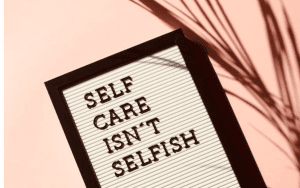Here Are 5 Tips From a Therapist on How to Stop People-Pleasing Behavior
 STOP PEOPLE PLEASING!!
STOP PEOPLE PLEASING!!
You’ve likely encountered the term ” stop people-pleasing” if you’ve been online within the last several years. In the realm of self-help-oriented social media, it has grown trendy.
Everyone, and I mean everyone, now suffers from people-pleaser syndrome (not an actual illness) and requires therapy. Here Are 5 Tips From a Therapist on How to Stop People-Pleasing Behavior
However, a gentler, more long-term solution is often preferable to the quick-fix Band-Aid method. Understanding what it is, where it comes from, and how it manifests in practice may help us begin reclaiming our agency and creating a life that works better for us. We should delve further into this.
Top 5 Tips How to Stop People-Pleasing Behavior
1. To What Extent Can You Define ” Stop People-Pleasing?”
People-pleasing is generally seen through the prism of a label, but it’s more beneficial to consider it in terms of a pattern of actions.
These actions often occur together, and their essence is placing others’ wants and needs ahead of our own so that we are accepted and appreciated.
To please, cater to, and accommodate others, people-pleasing habits might take the form of neglect and contempt for ourselves.
As a result, the compliments we get calm us and give us a feeling of acceptance. Unfortunately, it usually costs our tastes, desires, and happiness. We often end up feeling bitter and used as a result of this.
Why do we behave in ways that other people want us to?
When it comes to facts, we’re all people-pleasers at heart. We have an innate need to fit in and find acceptance. The truth is that it’s an adaptive mechanism developed through time. Our forefathers lived in tribes back in the stone age.
These neighbourhoods were secure places to live. You have to fit in with the group and avoid standing out to make it. There will be repercussions for anyone who chooses to go against the norm.
Isolation and rejection might make you vulnerable to predators like sabre-toothed tigers if you are forced to fend for yourself. It made perfect sense: get along with others to keep your life.
It is still reasonable, especially if we remember that people-pleasers are parent-pleasers’ offspring (and might still be).
These patterns and routines started when we were young. An overpowering desire to please is a defence strategy for establishing emotional bonds with parents who may only love their children under strict parameters.
This is common in households when the parents choose an authoritarian style that places a premium on compliance and discipline while harshly treating any signs of rebellion.
The kid learns they must be flawless, follow the rules to the letter, and do everything it takes to satisfy the caretaker to obtain any form of affection or attention from the caretaker and escape punishment.
The reasoning behind this conduct is the same as in prehistoric times: find a solution that meets your requirements while keeping the peace.
What got us through tough times as kids aren’t necessarily the best guide for making it through the adult world. This is especially true when problematic habits interfere with our daily lives and lower our standard of living.
2. The Telltale Symptoms of a People-Pleaser: And Stop People Pleasing.


- You overextend yourself, trying to meet everyone else’s requirements while neglecting your priorities.
- Instead of disappointing others, you prefer disappointing yourself and acting counter to your desires.
- Instead of prioritizing your needs, you constantly rearrange your schedule to suit those around you.
- When you’re injured by someone else, you internalize your emotions and find it hard to explain how you feel.
- Giving up on and ignoring oneself comes naturally and has a comforting familiarity.
- You hold anger toward yourself because you lack the confidence to advocate for your needs.
- You worry that you aren’t living the life you’ve imagined for yourself and that this is a common source of your inauthenticity.
- In other words, whether or not people think you’re doing a good job.
- You give more weight to what others think you “should” do than you want.
- You constantly seek and need external reassurance to alleviate your worry or inadequacy.
3. You Put Other People’s Opinions and Knowledge Ahead of Your Own.
The frequency and intensity of your people-pleasing efforts may be helpful to data to track. We are all people-pleasers, as was just said. The more pressing issue is to what extent. To further understand this idea, let’s imagine a scale with points ranging from 0 to 10.
The fact that our people-pleasing tendencies fall between 1 and 5 on the scale is not caused for alarm. But suppose we frequently find ourselves in the 6–10 range.
In that case, it may be worthwhile to dig a bit deeper since this likely indicates that we are putting excessive stress on ourselves and harming our health.
Stop Pleasing People.
What should we do if we spend more time than we’d want in that upper-end range?
One should first try to comprehend rather than criticize.
Understanding the origins and function of people-pleasing habits is essential since they are typically the result of an attempt to cope with difficult situations in early life.
One of the most effective methods to stop being a doormat and giving up on ourselves is to stop punishing ourselves for doing these things.
However, we may feel that criticizing and shaming ourselves is the only way out. Understanding and acceptance lay the groundwork for positive transformation.
4. Please Describe Your Current Situation in Detail.
Then, make a visual map or keep a notebook. Do something that can be seen.
Think about where you stand and where you can go.
Look at your life and the people in it to see where you could feel overextended, stressed, or resentful.
Think deeply about your feelings and how you’ve hidden them. Take note of the situations in which you feel like you’re not yourself.
Assess the times you’ve been let down by yourself so you can avoid doing the same to others.
Identify your ” shoulds ” and ask yourself who put them there. Ask your deeper self for guidance again. Try new things and accept criticism without limiting your creativity.
Take a Look at Your Work. Think about how you would like to see a change in how things now seem.
Ask yourself, “What would I be doing, thinking, and feeling if I stopped people-pleasing and forsaking myself and my needs?”
Please don’t be vague; think about it in as much detail as possible. Create a fresh mental image of who you want to be in the future and how you want to look.
5, It is on You to Where You Want to Change.


- Lean into the areas where you feel the most pain; for instance, if setting boundaries is hard for you. Make a list of “If/Then” statements for reference and study aid. For example:
- I will respectfully say no if asked to perform anything above my abilities.
- My preferences will be known if I realize I have ignored my demands.
- Construct three sets of actionable assertions.
Keep on Repeating.
In this case, repeat it again and again for success. This way, novel neural circuits and behavioural patterns can form in the brain. The shift occurs as a result of deliberate, purposeful behaviour. Choosing oneself over others is an ongoing activity that must be maintained to break free of people-pleasing.
Remember the Larger Picture.
Look into someplace else that might use your help. Again, be specific, and keep your attention on the manageable changes.
A Key Point.
Changing habits that have grown so ingrained to become a part of our identity as people-pleasers is difficult. Without those regular habits, we could feel disoriented. When it hurts our emotional health and interpersonal connections, we know it’s not functioning.
Be kind to yourself while you work out the kinks in your strategy to overcome your tendency to please others. Doing so won’t be a breeze. Good thing we can overcome obstacles.
For more information click here




